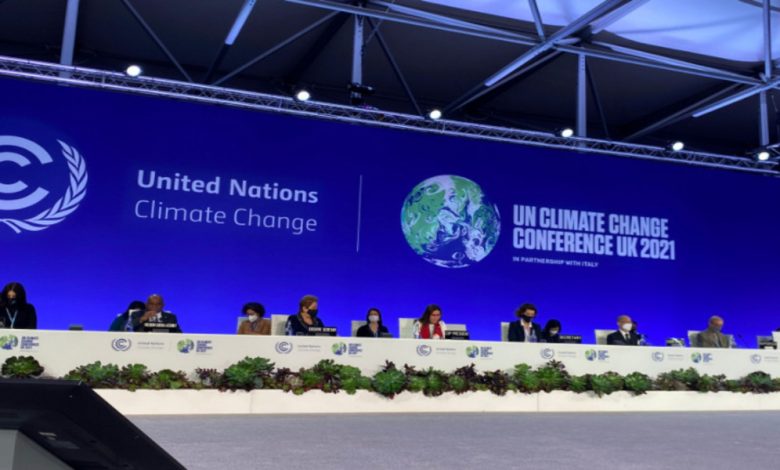
Nigeria has become the first major country in Africa to implement carbon budgets to pave its path to cutting emissions to net-zero.
President Muhammadu Buhari announced that Nigeria will reach a net-zero target in 2060 at the COP26 climate summit in Scotland. President Buhari has also signed a climate bill into law, which contains an annual target and five-year carbon budgeting plans.
Chukwumerije Okereke, a professor in environment and development at Reading University who helped revise the climate bill, told Climate Home News: “This is the biggest thing that has happened in Nigeria with regards to climate governance”.
The bill’s sponsor, Rep Samuel Onuigbo, said he had been trying to pass a climate bill for more than a decade. Prof Okereke said support from environment minister Sharon Ikeazor and momentum from the COP26 conference also played a key role.
“Nigeria needs to be praised for this,” said Eugene Itua, a sustainability consultant who helped revise the bill. “We encourage other climes to follow suit.”
Nigerian environmental activist Olumide Idowu told Climate Home the new law was “a good start” but questioned if a concrete plan has been designed to accommodate this bill.
Civil society, he said, should be engaged in the implementation phase. “We await that civil society will be allowed to give input that reflect the opinion of people. Not just being part of the council,” he said.
